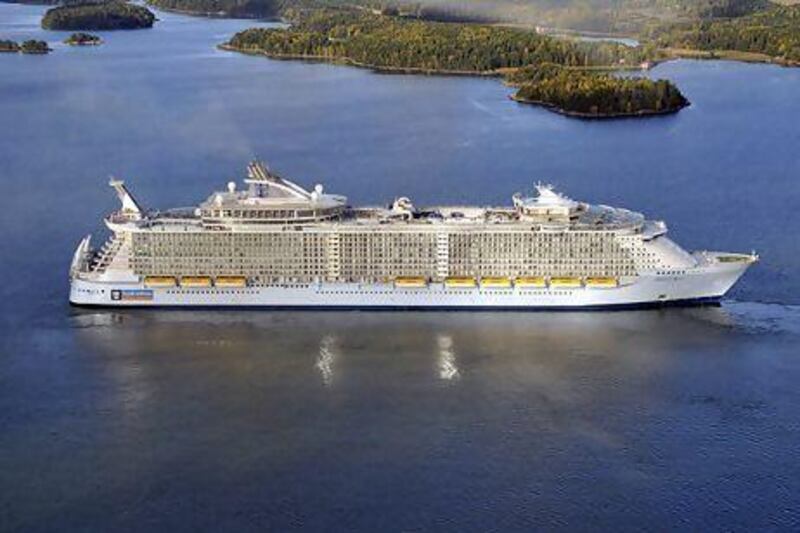The owner of the world's biggest cruise ship is targeting Arab holidaymakers as it switches from the Caribbean to Europe next year.
Oasis of the Seas, owned by Royal Caribbean, currently plies the waters around the coasts of Bahamas, Jamaica and Florida.
"She is coming next year, in September, to Europe and it's creating a huge interest because, particularly in the Arab market here, they love the biggest and the best," said Helen Beck, the regional director of the ship's owner.
"We have beautiful state room accommodation ... duplexes called the Grand Loft Suites and they resonate very well with Arab guests and their families - particularly when you are booking a large family it's perfect."
For the past four years the ship has sailed in Caribbean waters, which requires going through US immigration and dissuades many Arab families, said Ms Beck.
It takes at least seven days to enjoy all of the entertainment and attractions aboard the Oasis of the Seas, she said.
Top attractions include an outdoor aqua theatre that puts on high-diving and water spectacles. There is a theatre with seats for more than 2,000 guests. And there are performances of the musical Hairspray.
One of Royal Caribbean's other ships, Liberty of the Seas, has an ice rink on board.
Until this year, Royal Caribbean had a cruise ship operating from Dubai, which did not generate as much profit as expected.
However, the per centage of the number of people booking cruises from the Arabian Gulf region has grown by double digits over recent years.
"This year, 2011-12, we had 15 per cent growth but previously we had 30 to 40 per cent growth, which is very healthy," Ms Beck said. "This year is already setting up to be very good and we are expecting to get back to 30 to 40 per cent this year versus last year in the Arab market."





